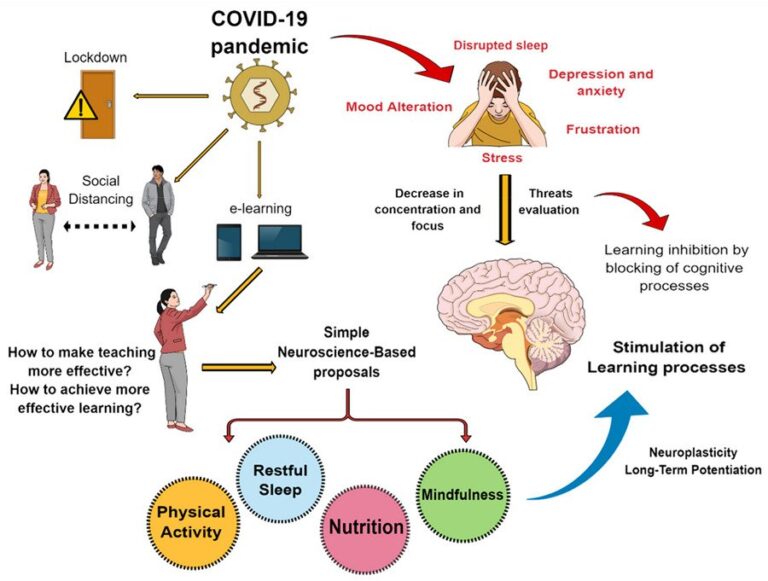Lack of sleep can cause all kinds of problems in the body, from a low immune system to weight gain, and even affects muscle recovery.
Knowing how many hours to sleep per day is essential to avoid the consequences of lack of sleep in the body.
This article details the effects of sleep deprivation, its symptoms, and what to do to avoid them.
Lack of Sleep – Effects on the Body
When talking about muscle recovery, the first idea that comes to mind is protein. However, no one can deny the importance of proteins in this process; it is not the only factor that must be considered.
Several studies have confirmed that good sleep is even more important. (1,2,3)
The constant lack of sleep not only generates the feeling of chronic fatigue. Instead, it decreases sports performance and increases the chances of muscle fatigue. It also generates a lousy mood and has adverse effects on the immune system.
Symptoms of lack of sleep
Constant headaches and slowness in processing information are symptoms of chronic sleeplessness. Sleeping less substantially reduces concentration and attention when working.
As well as negatively influencing the ability to analyze and process information.
Determining the number of hours to sleep per day is essential to avoid these symptoms. Making a place in the routine is necessary to improve productivity in your day today. Lack of sleep does not allow you to think clearly.
Lack of sleep affects testosterone.
Testosterone, a fundamental hormone for achieving optimal health, is affected by lack of sleep. A study has confirmed that decreasing the hours of sleep causes a drop in testosterone and estrogen levels in women by up to 10 – 30% (2).
Chronic lack of sleep causes increased levels of the stress hormone cortisol. Cortisol acts oppositely to testosterone; for this reason, one of the consequences of lack of sleep is to reduce the synthesis of sex hormones.
There are several techniques to lower cortisol levels. You can try going to the sauna, starting with meditation and training daily; they are effective methods to reduce cortisol levels by up to 20%. (4)
How many hours do you have to sleep per day?
The number of hours to sleep per day varies by age. For example, in the case of adolescents need about an hour more sleep than adults¹. The maximum and minimum hours to sleep per day are detailed below:
- Newborns: from 2:00 p.m. to 5:00 p.m.
- Children from 1 to 5 years old: from 10 to 13 hours.
- Children from 6 to 13 years old: from 9 to 11 hours.
- Adolescents under 17 years: 8 to 10 hours.
- People from 18 to 64 years old: from 7 to 9 hours.
- People over 65: 7 to 8 hours.
How many hours should people who are dieting to lose weight sleep?
There are no serious studies that have evaluated the relationship between lack of sleep and dieting to lose weight. However, it has been confirmed that reducing the hours of rest from 8 to 5 hours produces harmful changes in the metabolism of fats, giving more desire to eat. (1) .
Lack of sleep causes disorders in producing two hormones responsible for regulating appetite: leptin and ghrelin.
In other words, lack of sleep makes a person want to go to the fridge repeatedly.
Lack of sleep and muscle recovery
As mentioned above, the lack of hours of sleep causes changes in hormonal synthesis. Some researchers claim that it is one of the factors that hinder the growth of lean muscle mass and increase the percentage of body fat (3).
Lack of sleep and muscle are two closely related concepts. The importance of a good night’s sleep lies in the fact that this is the time when muscle fibers are restored.
Lack of sleep is a cause of overweight and obesity.
When you don’t get enough sleep, a person tends to feel constant weakness and tiredness. Due to this fact, the brain gives the order to replenish the missing energies in the form of calories (food). For this reason, it is said that lack of sleep is a cause of overweight and obesity.
To avoid gaining weight, avoiding lack of sleep is just as important as a correct diet. In particular, those people who are undergoing a weight loss process. Lack of sleep increases the difficulty of sticking to a specific diet. For example, a low carbohydrate diet and few hours of sleep are terrible.
If you have trouble getting into a deep sleep, you can take rest inducers. These types of drugs have practically no side effects and effectively improve the quality of sleep.
Good sleep and body posture
Poor sleep can wreak havoc on body posture. It is one of the leading causes of neck pain. It is not only necessary how many hours to sleep but also the pose and the quality of sleep. The best sleeping positions are on your back and your left side. Using extra pillows under the knees is an excellent strategy to align the spine.
ABSTRACT
- Lack of sleep causes all kinds of negative changes in the body.
- Being strict in determining how many hours to sleep is essential to avoid a drop in testosterone in men and estrogen in women.
- Symptoms of lack of sleep are loss of concentration, increased hunger, and less ability to process information.
- Chronic lack of sleep is a cause of overweight and obesity.
- Avoiding lack of sleep is essential to achieving good muscle recovery, correct posture, and increase cognitive performance.






